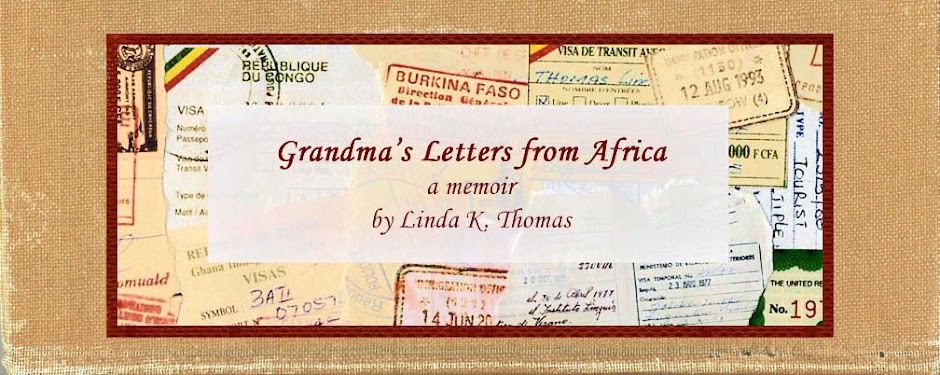During our three-month orientation course, if
our staff drove to Nairobi for supplies they also brought back mail. Everything
halted when mail arrived. One day we received a letter from our son Matt, age
23. He had written it on May 17, almost three months before Dave and I left the
States. He didn’t mail it, though, until we got to Africa.
I can honestly say now that I am very excited that you are going to Africa. Knowing that my parents are passionately doing God’s work not only gives me tremendous peace of mind, but it also provides an inestimable amount of motivation, courage, and drive to do so, myself, in whatever God has planned. I just can’t tell you how excited I am about it now. I will surely miss seeing you, but now I feel like our relationship supersedes life as most people on earth know it. If I never see you again on this earth, it matters very little to me, and I sense that it means little to you, too. Of course, that sounds worse than it is. I love being with you and I eagerly anticipate many more earthly adventures together with you. But on the scope of eternity, if for some reason we never are together again, big deal, because we’re just passing through this place, dedicated to a common holy purpose, heading for the same destination where we can spend eternity. Does that make any sense? Well, whether it does or not, it has given me a lot of peace and real excitement to see you on your way.
He set that letter aside for more than three
months and resumed writing on August 31:
All of that courageous rhetoric is the way I feel when I’m feeling brave. Sometimes though, I feel like screaming as loudly as I can, “I want my mommy and my daddy!” I really miss knowing where you are and what you’re doing each day. That will take some getting used to.
Those words cut me to the heart. I’ll never
forget them.
We also got a letter from our daughter Karen,
who had turned 22 only days before. She was busy in Port Angeles as a middle
school English teacher and Young Life Leader. She wrote:
Oh, my sweet parents, my friends, I got another postcard from you yesterday. It made me cry. I love you so much. I think of and pray for you every day. I worry about you. I do little things and think, “Oh! That sounds just like Mom,” or “That’s exactly what Dad would’ve said or done.”
My heart ached for my son and daughter. Sometimes
the pain seemed almost more than I could bear.
When that happened, I took a mini-break and
spent time alone with God.
I hoped and prayed that my children’s
struggles would make them stronger and better, not break them. I wanted to ask
God to prevent their difficulties but, instead, I asked Him to help them succeed
within their difficulties.
In Psalm 138:8, David said he knew the Lord
would fulfill His purposes for him, and those words gave me hope that God would
fulfill His good purposes for my children.
I reminded myself that Christ, at the right
hand of God, intercedes for each of us.
The Bible says we can give all our worries and
anxieties to God because He cares about us (1 Peter 5:7 and Psalm 55:22).
The Bible also says “Don’t be . . . worried about
a thing. Be saturated in prayer throughout each day, offering your faith-filled
requests before God with overflowing gratitude. Tell him every detail of your
life, then God’s wonderful peace that transcends human understanding, will
guard your heart and mind. . . .” (Philippians 4:6-7, The Passion Translation)
Trusting God to care for my kids
was the only way I could cope sometimes.
My requests were not always “faith-filled.”
Often “overflowing gratitude” eluded me.
And sometimes His peace
seemed to be beyond my grasp,
but God did guard my heart and mind.
I chose to believe that God was working
out
good things for my children
and growing them in their faith.
And so, life went on.
In ways I’ll never fully know,
God helped me, and my kids,
moment by moment, step by step.
(From Chapter 2, Grandma’s Letters from Africa)





